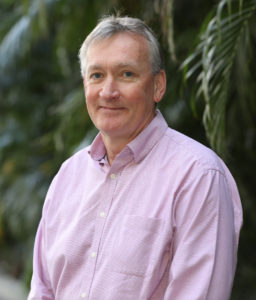Prof. Richard Lock: Improving outcomes for children with aggressive T-cell acute lymphoblastic leukaemia
Acute lymphoblastic leukaemia (ALL) is the most common type of cancer in children, and sadly remains one of the most common causes of death from disease.
Each year in Australia, around 213 children are diagnosed with ALL, with the greatest number of children diagnosed between the ages of two and four.
ALL in children can be broadly divided into two forms – B-lineage and T-lineage. The latter is an aggressive malignancy that is exceptionally difficult to cure after relapse.
Professor Richard Lock and his team at the Children’s Cancer Institute in Sydney are investigating the effectiveness of a “prodrug” (a medication that converts into an active form once it enters the body), in combination with current standard-of-care drugs to treat children when they relapse with ALL or do not respond to treatment.
The hope is this project will lead to the development of better, personalised approaches to improve the treatment and outcomes for young patients with T-lineage ALL.
About Richard
Professor Richard Lock is an internationally recognised leader in experimental therapeutics and preclinical drug testing in paediatric cancer.

Professor Lock is Head of the Blood Cancers Theme and Group Leader of the Leukaemia Biology Group at Children’s Cancer Institute. He was recruited to the Institute in 1998 from the position of Associate Professor, Department of Medicine and Department of Biochemistry and Molecular Biology, University of Louisville, USA.
Having already established a reputation for his research into the cell cycle and mechanisms of cell death (apoptosis), Richard set his sights on investigating the clinical problem of drug resistance in childhood cancer. ‘I wanted to take the opportunity to use my skills and training to focus in on a major unmet clinical need,’ he explains.
As well as investigating how cancer cells become resistant to anti-cancer drugs, Richard’s research focuses on developing new drugs for the treatment of children with high-risk leukaemia – children who tend to respond poorly to conventional chemotherapy.
His team is credited with establishing the world’s most clinically relevant experimental model of acute lymphoblastic leukaemia (ALL).
Last updated on January 30th, 2023
Developed by the Leukaemia Foundation in consultation with people living with a blood cancer, Leukaemia Foundation support staff, haematology nursing staff and/or Australian clinical haematologists. This content is provided for information purposes only and we urge you to always seek advice from a registered health care professional for diagnosis, treatment and answers to your medical questions, including the suitability of a particular therapy, service, product or treatment in your circumstances. The Leukaemia Foundation shall not bear any liability for any person relying on the materials contained on this website.